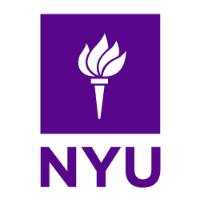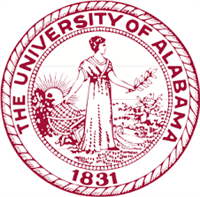What do they do?
Stain, mount, and study cells to detect evidence of cancer, hormonal abnormalities, and other pathological conditions following established standards and practices.
Also known as:
Cytologist, Cytology Applications Specialist, Cytology Coordinator, Cytology Technical Specialist, Cytotechnologist
-
0%
Change
Select a state to see its job growth rate rankingJob Openings
Select a state to see its net job growth ranking
-
Johns Hopkins University
Baltimore, MD
-
Tufts University
Medford, MA
-
New York University
New York, NY
-
Duke University
Durham, NC
-
University of Alabama at Birmingham
Birmingham, AL
Looking for colleges that offer a specific major? Use the College Match Tool to find your best-matched schools and discover your estimated Net Price!
Most Popular Majors that prepare Cytotechnologists
-
#1
-
Degrees Granted
99
-
Female Students
61
-
Male Students
38
-
Median Starting Salary
$42,090
-
-
#2
-
Degrees Granted
9
-
Female Students
6
-
Male Students
3
-
Median Starting Salary
$48,800
-
-
#3
-
Degrees Granted
4
-
Female Students
3
-
Male Students
1
-
Median Starting Salary
$48,800
-
People in this career often have these skills:
- Reading Comprehension - Understanding written sentences and paragraphs in work-related documents.
- Active Listening - Giving full attention to what other people are saying, taking time to understand the points being made, asking questions as appropriate, and not interrupting at inappropriate times.
- Critical Thinking - Using logic and reasoning to identify the strengths and weaknesses of alternative solutions, conclusions, or approaches to problems.
People in this career often know a lot about:
- Biology - Knowledge of plant and animal organisms, their tissues, cells, functions, interdependencies, and interactions with each other and the environment.
- Medicine and Dentistry - Knowledge of the information and techniques needed to diagnose and treat human injuries, diseases, and deformities. This includes symptoms, treatment alternatives, drug properties and interactions, and preventive health-care measures.
People in this career often have talent in:
- Oral Comprehension - The ability to listen to and understand information and ideas presented through spoken words and sentences.
- Written Comprehension - The ability to read and understand information and ideas presented in writing.
- Near Vision - The ability to see details at close range (within a few feet of the observer).
- Inductive Reasoning - The ability to combine pieces of information to form general rules or conclusions (includes finding a relationship among seemingly unrelated events).
- Problem Sensitivity - The ability to tell when something is wrong or is likely to go wrong. It does not involve solving the problem, only recognizing that there is a problem.
- Deductive Reasoning - The ability to apply general rules to specific problems to produce answers that make sense.
- Flexibility of Closure - The ability to identify or detect a known pattern (a figure, object, word, or sound) that is hidden in other distracting material.
- Arm-Hand Steadiness - The ability to keep your hand and arm steady while moving your arm or while holding your arm and hand in one position.
- Finger Dexterity - The ability to make precisely coordinated movements of the fingers of one or both hands to grasp, manipulate, or assemble very small objects.
- Visual Color Discrimination - The ability to match or detect differences between colors, including shades of color and brightness.
People in this career often do these activities:
- Analyze laboratory specimens to detect abnormalities or other problems.
- Verify accuracy of patient information.
- Communicate test or assessment results to medical professionals.
- Prepare biological specimens for laboratory analysis.
- Test biological specimens to gather information about patient conditions.
- Verify that medical activities or operations meet standards.
- Follow protocols or regulations for healthcare activities.
- Assist healthcare practitioners during examinations or treatments.
- Adjust settings or positions of medical equipment.
- Maintain medical laboratory equipment.
- Repair medical facility equipment.
- Supervise technical medical personnel.
- Maintain medical or professional knowledge.
This page includes data from:

 Occupation statistics: USDOL U.S. Bureau of Labor Statistics Occupational Employment Statistics
Occupation statistics: USDOL U.S. Bureau of Labor Statistics Occupational Employment Statistics









